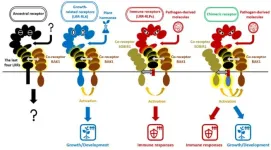Compared with the standard medication alteplase, the newer clot-busting medication tenecteplase may offer a safe, effective and simpler way to treat clot-caused stroke in special ambulances called mobile stroke units. Tenecteplase is given in a simpler, single injection into the bloodstream, while alteplase requires an hour-long infusion after an initial injection. The study reviewed the real-world experiences of a single mobile stroke unit in Phoenix between February 2021 and April 2023. Embargoed until 4 a.m. CT/5 a.m. ET, Thursday, Feb. 1, 2024
DALLAS, Feb. 1, 2024 — Compared with the standard clot-busting medication alteplase, the newer clot-buster tenecteplase may offer a safe, effective and simpler way to treat ischemic (clot-caused) stroke in mobile stroke units, according to real-world experiences detailed in a preliminary study to be presented at the American Stroke Association’s International Stroke Conference 2024. The meeting will be held in Phoenix, Feb. 7-9, and is a world premier meeting for researchers and clinicians dedicated to the science of stroke and brain health.
Both tenecteplase and alteplase are clot-busting medications. However, tenecteplase is given in a single injection into the bloodstream, while alteplase requires an hour-long infusion after an initial injection. Alteplase is currently the only FDA-approved clot-buster for treating ischemic stroke. Tenecteplase is FDA-approved for the treatment of clots blocking coronary arteries and is used off-label to treat ischemic stroke.
“One of the most important parts of treating stroke patients is getting them the medication they need as quickly and as safely as possible. We know from a recent, large, randomized study that tenecteplase is superior for stroke treatment when given on an ambulance with imaging capability, however, these findings had not been confirmed outside of a trial,” said J. Tyler Haller, Pharm. D., lead author of the study and a clinical pharmacy specialist in neurocritical care at St. Joseph’s Hospital and Medical Center in Phoenix. “Our study looked at real-world implementation of tenecteplase, and we found that we were able to administer it without delay and provide our stroke patients with safe care as quickly as possible on our mobile stroke unit.”
The Barrow Neurological Institute in Phoenix has the only mobile stroke treatment unit in Arizona – a specially equipped and staffed mobile emergency room. It is deployed when fire department dispatchers determine that a 911 call indicates a possible stroke patient. The mobile stroke unit is staffed by stroke-certified personnel and includes a CT scanner, portable lab and clot-dissolving medications to help quickly diagnose and treat stroke.
For this study, the researchers analyzed the electronic medical records of people who received clot-busting medication in the mobile stroke unit between February 2021 and April 2023. The study looked at the medical records of people who received treatment both before and after the mobile stroke unit switched from alteplase to tenecteplase in May 2022. During the study period, 40 participants received alteplase, and 32 participants received tenecteplase. The participants’ median age was 66 years, and their median score on the National Institute of Health Stroke Scale was 9, indicating a moderately severe stroke.
The study found:
There was no significant difference in the time span between a patient’s entry to the mobile stroke unit and the administration of either clot-busting medication. There was no difference in time from: entry to imaging results; dispatch of the unit to the administration of medications; or the clinician’s decision about treatment to the time medications were administered. As an indicator of safety, the researchers compared how often patients developed bleeding in the brain within 24 hours of receiving a clot-busting medication: No patient receiving either medication developed this complication. “While there was no significant difference in time to administration across the two medications, health care staff feedback confirmed that the calculation and administration of tenecteplase was easier to administer in comparison to alteplase,” said Tiffany O. Sheehan, Ph.D., R.N., FAHA, senior author of the study and manager, Stroke Center Development, Barrow Neurological Institute at St. Joseph's Hospital and Medical Center in Phoenix. “Administering a single infusion of tenecteplase is more straightforward and allows health care staff extra time to stabilize patients since they do not have to monitor an hour-long infusion of alteplase. This makes the transfer of patients as they are taken to a hospital less complicated.”
“Apart from being less expensive, our results confirm tenecteplase is safe and as effective as alteplase. We will continue to collect safety and outcome data on our practice; however, we anticipate that other mobile stroke units across the country will begin to utilize tenecteplase if they are not already,” Haller said.
“Mobile Stroke Units have been a very exciting development because they reduce the time to treatment, and we know that after a stroke, time is brain. Most cities in the U.S. don’t have this kind of treatment available, though, because of cost. So anything that can be done to reduce costs and other challenges of operating a Mobile Stroke Unit has potential to be impactful. Tenecteplase is increasingly being used because of its ease of use, the lower cost and its comparable safety and effectiveness, compared to tPA,” said Mitchell S. V. Elkind, M.D., M.S., FAHA, chief clinical science officer of the American Heart Association, a past president of the American Heart Association, past chair of the Advisory Committee of the American Stroke Association — a division of the American Heart Association, and a tenured professor of neurology and epidemiology at Columbia University in New York. Dr. Elkind was not involved in this study.
The study is limited because it is a retrospective analysis of electronic medical records from a single mobile stroke unit. The researchers studied the time before and after the mobile stroke unit began using tenecteplase and was unable to control for other changes in practice that may have occurred during that time.
Co-authors, disclosures and funding sources are listed in the abstract.
Statements and conclusions of studies that are presented at the American Heart Association’s scientific meetings are solely those of the study authors and do not necessarily reflect the Association’s policy or position. The Association makes no representation or guarantee as to their accuracy or reliability. Abstracts presented at the Association’s scientific meetings are not peer-reviewed, rather, they are curated by independent review panels and are considered based on the potential to add to the diversity of scientific issues and views discussed at the meeting. The findings are considered preliminary until published as a full manuscript in a peer-reviewed scientific journal.
The Association receives funding primarily from individuals; foundations and corporations (including pharmaceutical, device manufacturers and other companies) also make donations and fund specific Association programs and events. The Association has strict policies to prevent these relationships from influencing the science content. Revenues from pharmaceutical and biotech companies, device manufacturers and health insurance providers and the Association’s overall financial information are available here.
Additional Resources:
Video interview with Mitchell S. V. Elkind, M.D., M.S., FAHA and other multimedia are available on the right column of the release link https://newsroom.heart.org/news/new-clot-busting-medication-simplified-stroke-treatment-in-specialized-ambulance?preview=77c236cc29c5487654840647b674267a After Feb. 1, view abstract poster WMP30 in the ASA International Stroke Conference 2024 Online Program Planner AHA news release: Newer clot-busting medication may someday increase time for stroke treatment (Feb. 2022) AHA news release: Newer generation, clot-busting stroke medication cuts the risk of serious bleeding in half (Feb. 2022) AHA news release: Mobile stroke units improve outcomes and reduce disability among stroke patients (March 2021) For more news at ASA International Stroke Conference 2024, follow us on X (formerly known as Twitter) @HeartNews #ISC24
###
About the American Stroke Association
The American Stroke Association is devoted to saving people from stroke — the No. 2 cause of death in the world and a leading cause of serious disability. We team with millions of volunteers to fund innovative research, fight for stronger public health policies and provide lifesaving tools and information to prevent and treat stroke. The Dallas-based association officially launched in 1998 as a division of the American Heart Association. To learn more or to get involved, call 1-888-4STROKE or visit stroke.org. Follow us on Facebook, X.
END




